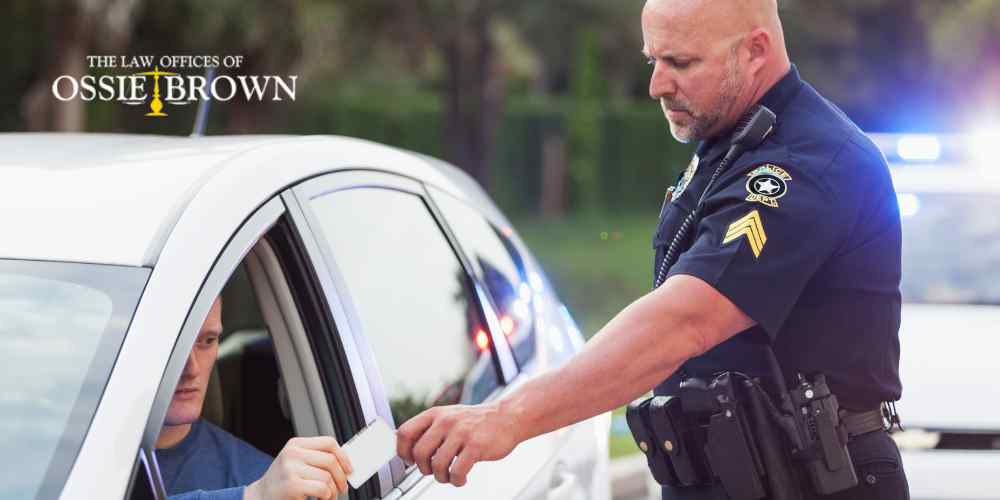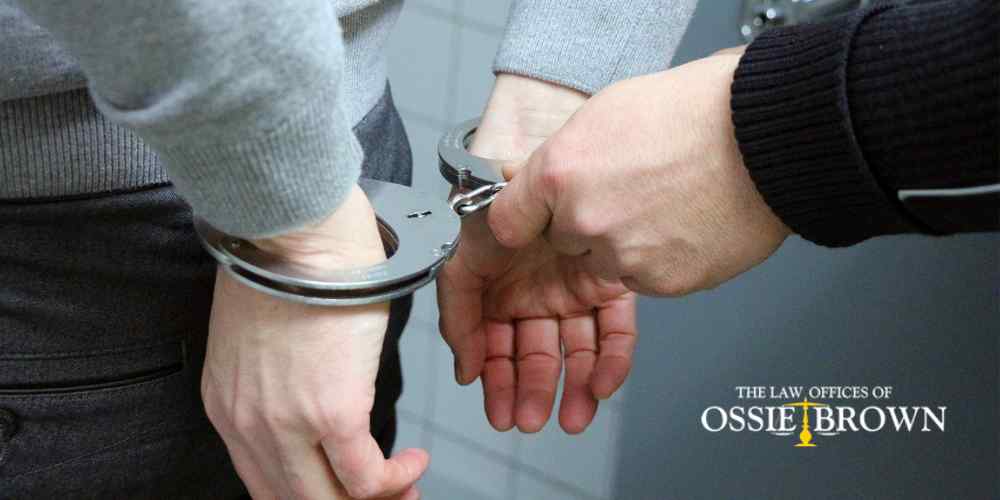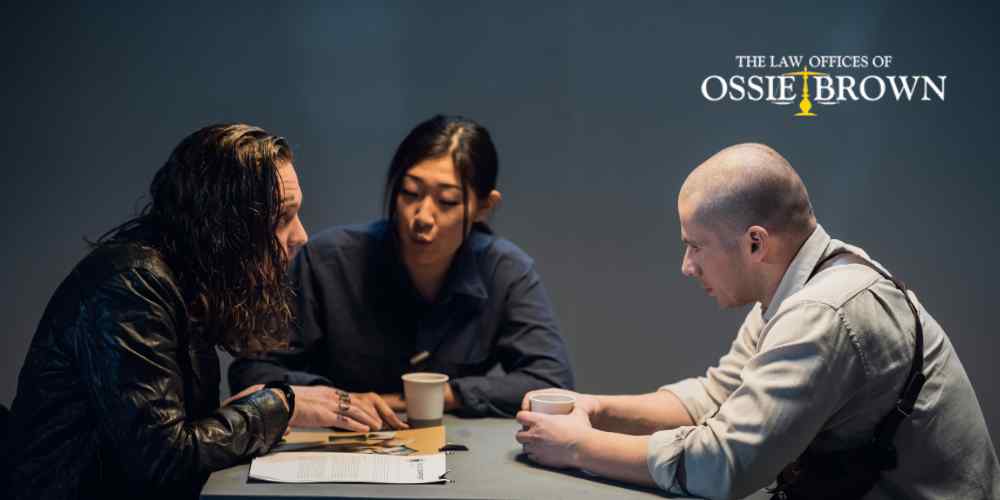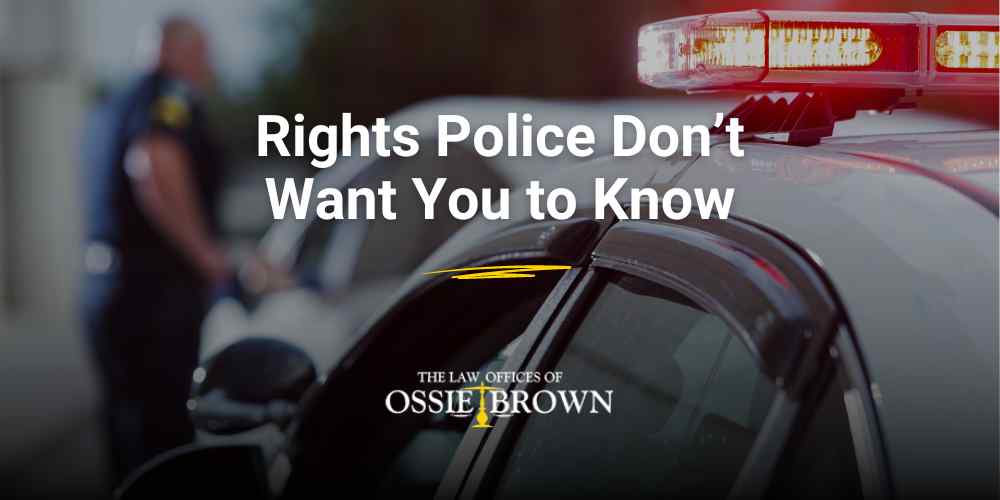The Law Offices of Ossie Brown, your trusted Baton Rouge criminal defense attorneys, are dedicated to ensuring that every individual understands their constitutional rights. It’s crucial to be aware of the rights police don’t want you to know. We’re committed to empowering our clients with the knowledge needed to protect their constitutional rights.
We believe that being informed is the first step towards safeguarding your freedom. Call our Baton Rouge criminal defense lawyers at 225-343-1111 to schedule a free consultation.
What Are Rights Police Don’t Want You to Know in Louisiana?

Police officers will use a number of various, completely legal tactics in order to obtain evidence, written statements, or confessions. However, if you know your rights, you can help protect yourself from serious consequences like jail time.
Below are some of the rights police don’t want you to know in Louisiana:
You Have the Right to Remain Silent
If a police officer asks a question you aren’t comfortable answering, you do not have to answer questions. You must identify yourself, but outside of giving the officer your name and address, you do not have to answer anymore questions. This includes information like the status of certain nonimmigrant visas, citizenship status, or what you were doing before the police stop.
You Have the Right To Have an Attorney
If you are arrested, you have the right to use your local phone call to speak to a lawyer immediately. You can request to have your criminal defense lawyer present when answering any questions (beyond basic identity questions) after you’ve been booked.
If you cannot afford a criminal defense lawyer, the state will assign you a free one. However, skilled defense attorney can provide you with more specialized attention. Additionally, if the court finds that you have the means to pay for an attorney, you may even be charged for the public defender’s services anyway.
You Have the Right to Refuse Consent to a Search of Your Home, Phone, or Body
Unless a police officer has a search warrant signed by a judge, they cannot search your home, cell phone, or body without your permission. If you consent to a search, however, they can search your home or person and use any evidence they find against you in court. It’s important that you refuse consent to a search and exercise your Fourth Amendment right against unreasonable searches.
A police officer can pat you down for a weapon, but they cannot go through your pockets unless they feel something similar to a weapon. Any further search is a violation of your constitutional rights.
A Warrant is Not Necessary to Search a Car
A police officer does not need a warrant to search your car. If the police officer asks to search your car, you can refuse the request. However, refusing can be risky. If if they have a reason to believe your car has evidence of a crime, they can search your car without a warrant.
Additionally, if the officer smells or sees something in plain view when pulling you over, especially on suspicion of drunk driving, they can arrest you.
Be sure to contact a Baton Rouge drug possession attorney for more information.
You Can Ask to View a Search Warrant
You can request to see the search warrant signed by a judge. If it isn’t valid, the police officer cannot provide false documents.
There Must Be Probable Cause for a Police Traffic Stop
A law enforcement officer can only pull you over if they have probable cause to believe that you are breaking traffic laws or otherwise engaging in criminal activity. After initiating a traffic stop, officers have to provide you with a clear evidence for pulling you over.
Police Must Have a Warrant For Arrest if They Don’t Have Probable Cause

If a police officer doesn’t have a reason to suspect that you are involved in illegal activity, they need an arrest warrant to arrest you. You cannot be arrested if the police do not have a reasonable suspicion of illegal activity or a signed warrant.
Unless You’re Detained or Under Arrest, You Can Leave the Police Officer
If you are not detained or under arrest, you do not have to stay with the police. Ask the officer if you are being arrested or detained, and if you aren’t, you can calmly leave the area.
Police Can Lie to You About Having Evidence
If you are detained or arrested, police can lie about having evidence.
While they may be able to lie after an alleged crime has taken place, they cannot coax someone into committing a crime in order to arrest them for it. If police induce someone to commit a crime they would not have done without the officer’s actions, it could be considered entrapment. If you’re wondering: what is entrapment? Our Baton Rouge criminal defense attorneys can review your case and inform you of whether this defense can potentially clear your name.
You Cannot Resist a Law Enforcement Officer in a Lawful Arrest
While there are a lot of things police officers cannot do, they can still arrest you under suspicion of criminal activity, and if you physically resist, you may be charged with resisting an officer in Louisiana.
Resisting arrest occurs when you:
- fight an officer to avoid being restrained;
- fight an officer after you’ve been arrested;
- refuse to identify yourself or give police a false identity;
- refuse to move from a congregation when ordered by an officer; or
- interfere with a police cordon.
If it’s discovered that the police had no right to arrest you in the first place, your charges may be dropped. However, for your own safety and well-being, it’s best to comply and firmly assert your right to remain silent and your right to an attorney, even if the arrest is unlawful.
You Don’t Have to Tell Police Officers Where You’re Going
If you are stopped by police, you do not have to tell them what you are doing. Answering questions like “Where are you heading?” can seem harmless, but police officers will use any and all evidence they have against you in court. You can respond to these questions with “I am exercising my right to remain silent.”
You Can Refuse a Breathalyzer Test, But You Will Be Penalized
If you’re wondering what happens when you get pulled over for a DUI, you technically do have the right to refuse a breathalyzer test, but there will be a legal penalty for refusal to consent. So what happens if you refuse a breathalyzer test? You could be arrested, fined, and have your driver’s license suspended for up to a year.
What To Do if You Are Pulled Over by Police

If you are stopped by police while driving, you should:
- Safely pull over, roll down your window, switch on your car’s internal light if it’s dark, and place both hands on the steering wheel
- Provide the officer with your driver’s license, vehicle registration, and proof of insurance
- Remain silent and do not answer questions
- Stay calm
You should not:
- Consent to a search
- Make any sudden movements
What To Do if You Are Arrested in Louisiana
If you are arrested following a police stop, you should:
- Assert your right to remain silent
- Assert your right to an attorney
- Make a local phone call to an attorney
- Sit silently in the police station, even if interrogated
You should not:
- Resist consent to searches of your body or vehicle
- Fight police or threaten them with violence
What To Do if Your Rights Are Violated
If you know or feel that your rights have been violated by police officers, immigration agents, or other government agents, there are a few things you can do to help seek justice.
- Identify the violating officer(s): record the badge and patrol car numbers of the arresting officer or any other law enforcement agents involved in the situation.
- Exchange information with witnesses: receive phone numbers from any witnesses, if possible.
- File a complaint: you can file a written complaint to the local law enforcement agency’s internal affairs division or civilian complaint board to report the incident.
- Seek medical attention: if you have been injured by a police officer, seek medical attention as soon as you can, if possible.
How a Criminal Defense Lawyer Can Help Defend Your Rights

If you have been accused of a crime, having a criminal defense lawyer is crucial to your case. Criminal defense attorneys know the ins and outs of the court system and understand how the police play a role in any criminal case. If your rights are violated at any point, an attorney can help prove this injustice occurred and get a better deal or potentially have your charges dropped.
If you or your family member has been detained or arrested as a result of unlawful police tactics like entrapment, call The Law Offices of Ossie Brown today. We can assess the situation, gather evidence, and prove that law enforcement acted unlawfully.
Call Baton Rouge Criminal Defense Attorneys at The Law Offices of Ossie Brown Today
If you are arrested, remaining silent is the most important thing you can do. The second most important thing you can do is call an experienced criminal defense attorney. Having a skilled lawyer on your side of the courtroom can be the difference between years of prison and walking home as a free citizen.
At The Law Offices of Ossie Brown, we can defend Louisiana clients accused of violent crimes, theft crimes, DUI, traffic tickets, and more. Call our Baton Rouge violent crimes defense lawyers, Baton Rouge theft lawyers, Baton Rouge DUI lawyers, and Baton Rouge traffic ticket lawyers at 225-343-1111 or contact us online to schedule your complimentary case evaluation with a legal professional.


